On March 1, a bill was introduced in the U.S. Senate to amend the Foreign Agents Registration Act (FARA). Included in the bipartisan bill, the Foreign Agents Registration Amendments Act, are the creation of an enforcement unit in the National […]
 On March 1, a bill was introduced in the U.S. Senate to amend the Foreign Agents Registration Act (FARA).
On March 1, a bill was introduced in the U.S. Senate to amend the Foreign Agents Registration Act (FARA).
Included in the bipartisan bill, the Foreign Agents Registration Amendments Act, are the creation of an enforcement unit in the National Security Division and updates to civil and criminal enforcement procedures. The legislation also creates a definition for the term ‘‘operative of a foreign government.”
Additionally, the bill would call for self-identification of registered individuals when meeting with members of congress or their staff.
Specifically, the bill states, “It shall be unlawful for any agent of a foreign principal registered under [FARA] to fail to disclose before or during any meeting with a member of Congress or staff of a member of Congress that the agent has registered under [FARA].’’
The bill was introduced by Republican Senators Todd Young and John Cornyn and Democratic Senators Dianne Feinstein and Jeanne Shaheen.
December 1, 2017 •
Federal Per Election Contribution Limits Upheld
On November 28, a court upheld the federal contribution limits set for primary and general elections. In Holmes v. Federal Election Commission, the U.S. Court of Appeals for the District of Columbia Circuit held the per-election structure of the Federal […]
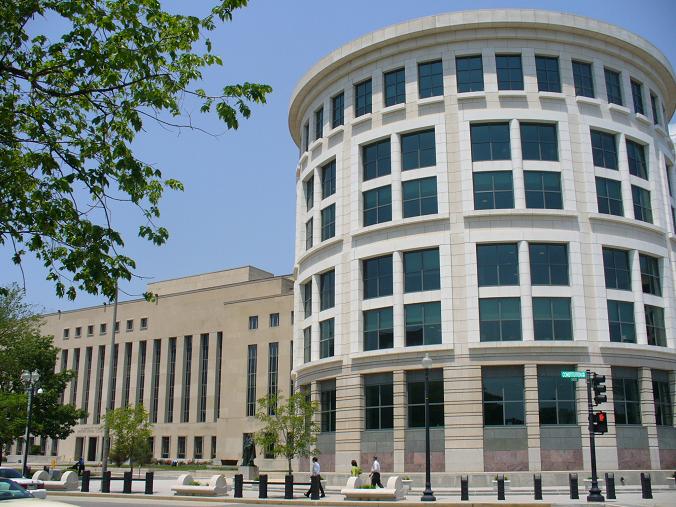 On November 28, a court upheld the federal contribution limits set for primary and general elections. In Holmes v. Federal Election Commission, the U.S. Court of Appeals for the District of Columbia Circuit held the per-election structure of the Federal Election Campaign Act’s base contribution ceilings for individuals is constitutional.
On November 28, a court upheld the federal contribution limits set for primary and general elections. In Holmes v. Federal Election Commission, the U.S. Court of Appeals for the District of Columbia Circuit held the per-election structure of the Federal Election Campaign Act’s base contribution ceilings for individuals is constitutional.
Federal law allows individuals to contribute to a federal candidate in the amount of $2,600 per primary election and $2,600 per general election. The plaintiffs had argued individuals should be permitted to give $5,200 to candidates for a general election campaign by not making any contributions at all in a primary election and by carrying over the $2,600 they could have donated for that candidate’s primary election.
In its decision, the court wrote, “The question before us is whether Congress could choose a per-election format consistent with the First Amendment, not whether it had to do so. Congress’s choice in that regard was a constitutionally permissible one.”
October 19, 2017 •
Ohio Congressman to Resign
Rep. Pat Tiberi of Ohio announced his intention to resign from the U.S. House of Representatives by January 31, 2018. In a statement, Tiberi said he has been offered the opportunity to lead the Ohio Business Roundtable. The Ohio Revised […]
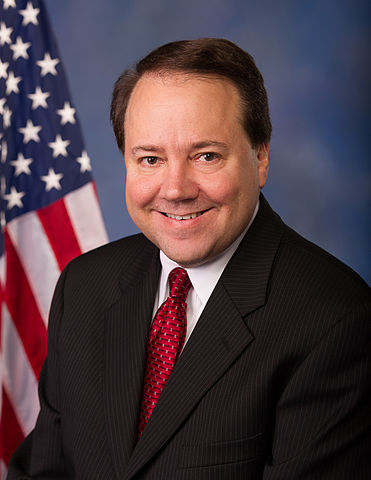 Rep. Pat Tiberi of Ohio announced his intention to resign from the U.S. House of Representatives by January 31, 2018.
Rep. Pat Tiberi of Ohio announced his intention to resign from the U.S. House of Representatives by January 31, 2018.
In a statement, Tiberi said he has been offered the opportunity to lead the Ohio Business Roundtable.
The Ohio Revised Code states that the governor “shall issue a writ of election directing that a special election be held to fill such vacancy” once the vacancy has become official.
Tiberi was first elected to Congress in November 2000.
September 18, 2017 •
OGE Director: Anonymous Contributions to Federal Employees’ Legal Defense Funds Prohibited
On September 15, the head of the Office of Government Ethics (OGE) said in an interview with Politico anonymous contributions to legal defense funds of federal employees are prohibited. David Apol, the acting director of the OGE, told Politico the […]
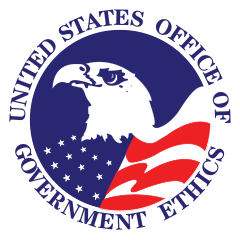 On September 15, the head of the Office of Government Ethics (OGE) said in an interview with Politico anonymous contributions to legal defense funds of federal employees are prohibited. David Apol, the acting director of the OGE, told Politico the policy had not changed, even though the note on a guidance document had been changed earlier this year.
On September 15, the head of the Office of Government Ethics (OGE) said in an interview with Politico anonymous contributions to legal defense funds of federal employees are prohibited. David Apol, the acting director of the OGE, told Politico the policy had not changed, even though the note on a guidance document had been changed earlier this year.
In 1993, the OGE issued an opinion letter holding a fund established for the benefit of a government employee to pay the employee’s legal expenses, while administered by a person having no connection with the employee’s official duties, could accept anonymous contributions. The OGE guidance letter is not legally binding.
Walter Shaub, then director of the OGE, instructed his staff in May of this year to add a one-sentence note to the top of the document signaling the OGE’s long standing internal practice had diverged from the formal guidance, according to Politico. The note read in all caps and a red font, “NOTE: SOME STATEMENTS IN THIS OPINION ARE NOT CONSISTENT WITH CURRENT OGE INTERPRETATION AND PRACTICE.”
Subsequently, after Shaub left the OGE, the document’s note was changed to read, again in all caps and a red font, “NOTE: THE PRIMARY FINDING ABOUT THE LIMITED APPLICABILITY OF 18 U.S.C. §209 TO PAYMENTS MADE FOR AN EMPLOYEE’S LEGAL EXPENSES HAS NOT CHANGED. HOWEVER, BECAUSE EACH ANALYSIS IS VERY FACT-SPECIFIC, AGENCY ETHICS OFFICIALS SHOULD CONSULT WITH THEIR OGE DESK OFFICER BEFORE ADVISING EMPLOYEES ON THIS TOPIC.”
Critics of the note change had said this opens the door up to lobbyists and other prohibited sources funding legal defenses for employees currently working in the White House.
September 15, 2017 •
Recognizing the 10-Year Anniversary of HLOGA—Cheers
The Honest Leadership and Open Government Act (HLOGA) of 2007 was enacted 10 years ago. It is a law of the US federal government, which in part, amended parts of the Lobbying Disclosure Act (LDA) of 1995. What did it […]
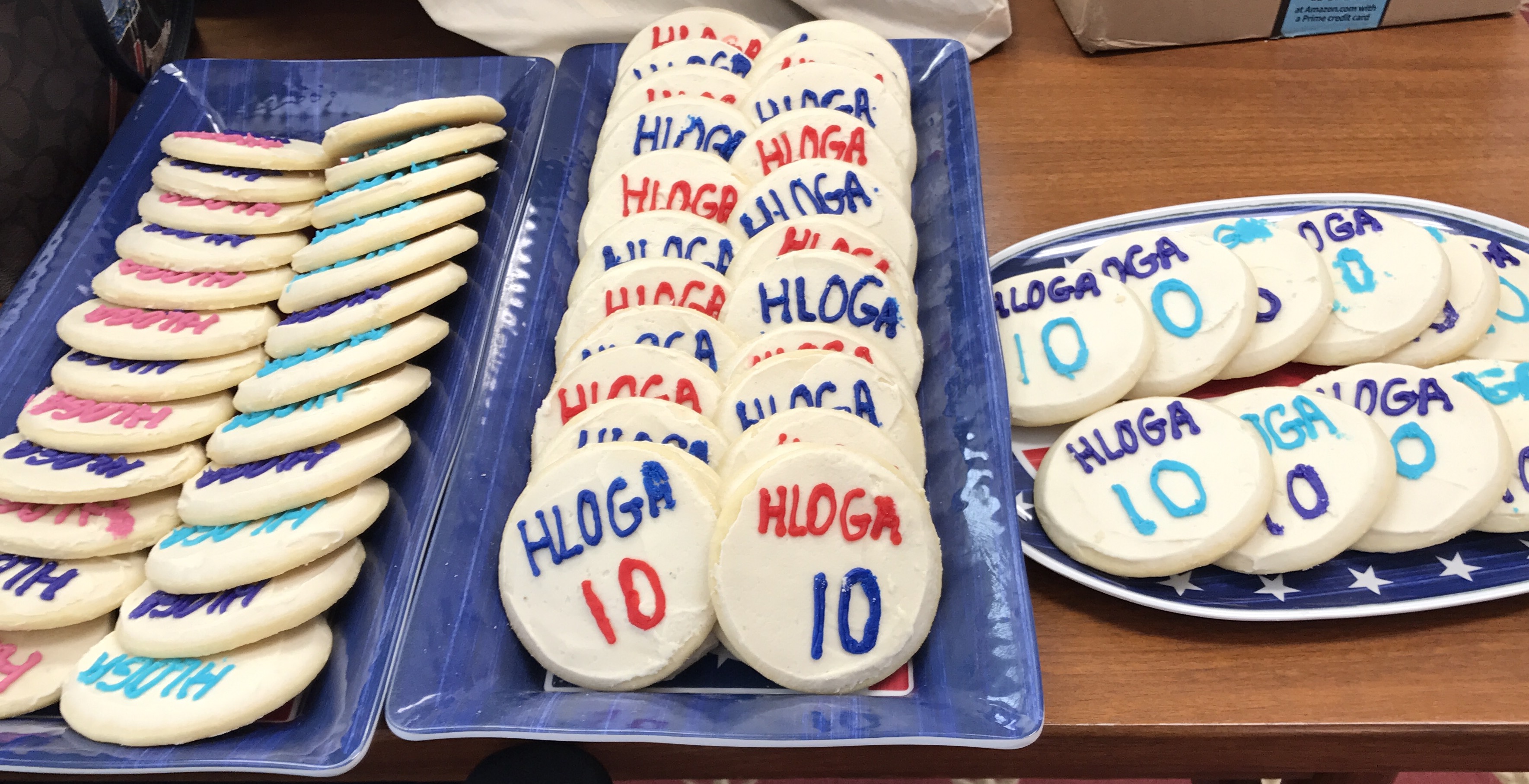 The Honest Leadership and Open Government Act (HLOGA) of 2007 was enacted 10 years ago. It is a law of the US federal government, which in part, amended parts of the Lobbying Disclosure Act (LDA) of 1995.
The Honest Leadership and Open Government Act (HLOGA) of 2007 was enacted 10 years ago. It is a law of the US federal government, which in part, amended parts of the Lobbying Disclosure Act (LDA) of 1995.
What did it do? For one, it strengthened the public disclosure requirements regarding lobbying activity and placed restrictions on gifts. The bill was signed into law by President George W. Bush on September 15, 2007.
In addition, it closed the revolving door for many people in the federal government from lobbying for a certain period of time; it increased the number of reports due a year—from twice a year to four times a year; it prohibited Members of Congress from attending parties held in their honor at national party conventions—if they were sponsored by lobbyists; requires candidates, other than those running for a seat in the House, pay the fair market value of airfare (charter rates) when using non-commercial jets to travel; requires candidates for the House to not use non-commercial aircraft; requires lobbyists to certify they have not given gifts or travel that would violate Senate or House rules; requires the disclosure of businesses or organizations contributing more than $5,000 and actively participating in lobbying activities by certain coalitions and associations; instituted a lot of prohibitions between spouses who are registered lobbyists unless they were registered at least one year prior to the most recent election of the spouse to office; and requires entertainment and sports tickets be valued at market rates.
There is definitely more to HLOGA which affected lobbyists, Members of Congress, Cabinet Secretaries, senior Senate staff, and senior House staff. It is the #1 reason State and Federal Communications strengthened its federal presence in DC by bringing on Rebecca South, formerly from Blank Rome, and Gamble Hayden, formerly from PhRMA and Boehringer Ingelheim. Our FedALERTS program is the key to capturing the information needed for 100% compliance on the federal level.
Will there be changes in the future? Probably…In the meantime, we are celebrating HLOGA today at State and Federal Communications.
September 11, 2017 •
Campaign Finance Riders in House Financial Services Appropriations Bill
Several provisions added last week to the House Financial Services appropriations bill would alter some federal campaign laws. The legislation would prevent some charitable 501(c)(3) organizations such as churches from losing their tax-exempt status for making contributions to candidates. The […]
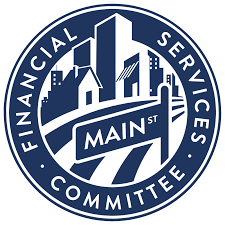 Several provisions added last week to the House Financial Services appropriations bill would alter some federal campaign laws.
Several provisions added last week to the House Financial Services appropriations bill would alter some federal campaign laws.
The legislation would prevent some charitable 501(c)(3) organizations such as churches from losing their tax-exempt status for making contributions to candidates. The bill would also allow corporations greater latitude in soliciting employees to contribute to political action committees.
The riders to the bill also include provisions prohibiting the IRS from enacting rules governing political activity and prohibiting the SEC from implementing rules requiring corporations to report to its shareholders a corporation’s political campaign activities.
A further change to campaign finance law in the appropriation bill would bar the use of funds to recommend or require any entity submitting an offer for a federal contract to disclose specified political contributions as a condition of submitting the offer.
The appropriations and other finance bills are expected to be debated this and next week in the House.
September 7, 2017 •
Trump Nominates FEC Commissioner for Federal Judgeship
On September 7, President Donald J. Trump nominated Matthew Spencer Petersen, a commissioner with the Federal Election Commission (FEC), to serve as a District Judge on the U.S. District Court for the District of Columbia. Petersen, a Republican, is one […]
 On September 7, President Donald J. Trump nominated Matthew Spencer Petersen, a commissioner with the Federal Election Commission (FEC), to serve as a District Judge on the U.S. District Court for the District of Columbia. Petersen, a Republican, is one of the five remaining FEC commissioners.
On September 7, President Donald J. Trump nominated Matthew Spencer Petersen, a commissioner with the Federal Election Commission (FEC), to serve as a District Judge on the U.S. District Court for the District of Columbia. Petersen, a Republican, is one of the five remaining FEC commissioners.
Without Peterson, the FEC will have only four of the six required commissioners serving, all with expired terms. With Petersen’s absence from the FEC there will remain two registered members of the Republican Party, one registered member of the Democratic Party, and one Independent, Chairman Steven T. Walther.
The FEC requires at least four commissioners to agree for any official action. A replacement for Petersen will be selected by the president and then confirmed by the U.S. Senate. No more than three members of the FEC may be registered with the same political party.
August 7, 2017 •
US House Joint Resolution 113 Proposes Constitutional Amendment for Campaign Finance Regulation
On August 3, a federal campaign finance constitutional amendment with public financing authority was referred to the House Committee on the Judiciary’s Subcommittee on the Constitution and Civil Justice. House Joint Resolution 113, introduced in the U.S. House of Representatives […]
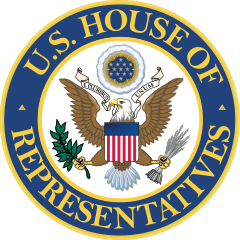 On August 3, a federal campaign finance constitutional amendment with public financing authority was referred to the House Committee on the Judiciary’s Subcommittee on the Constitution and Civil Justice.
On August 3, a federal campaign finance constitutional amendment with public financing authority was referred to the House Committee on the Judiciary’s Subcommittee on the Constitution and Civil Justice.
House Joint Resolution 113, introduced in the U.S. House of Representatives on July 20, 2017, proposes an amendment to the Constitution of the United States granting explicit authority to Congress and to the states to regulate contributions and expenditures in political campaigns and to enact public financing systems for such campaigns.
Rep. Adam Schiff introduced the legislation with the intent to increase regulation of campaign contributions and spending.
“The regulatory process is at a standstill as we watch billions of dark money pour into elections,” Schiff said in a press release.
On July 31, a bill was introduced in the U.S. Senate to strengthen the federal lobbying laws concerning the representation of foreign interests. Senate Bill 1679, the Foreign Agent Lobbying Transparency Enforcement Act, introduced by Sens. Tammy Duckworth, Dick Durbin, […]
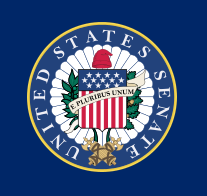 On July 31, a bill was introduced in the U.S. Senate to strengthen the federal lobbying laws concerning the representation of foreign interests.
On July 31, a bill was introduced in the U.S. Senate to strengthen the federal lobbying laws concerning the representation of foreign interests.
Senate Bill 1679, the Foreign Agent Lobbying Transparency Enforcement Act, introduced by Sens. Tammy Duckworth, Dick Durbin, and Richard Blumenthal, amends the Foreign Agents Registration Act of 1938 (FARA) to increase enforcement of certain violations and strengthen certain transparency requirements. Specifically, the bill would authorize the U.S. Department of Justice (DOJ) to levy civil fines to punish offenders who fail to properly label FARA filings, file late, do not file at all, or fail to register. The legislation also clarifies what required statements must be filed with the DOJ and mandates registrants file certain informational materials currently excluded from reporting.
The bill has been referred to the Senate Committee on Foreign Relations.
July 31, 2017 •
We the People Act of 2017 introduced in US Congress
On July 28, Rep. David E. Price introduced a 252-page bill which would reform campaign finance laws, amend the current federal lobbying laws, and address integrity and transparency problems in the Executive Branch. House Resolution 3537, We the People Act […]
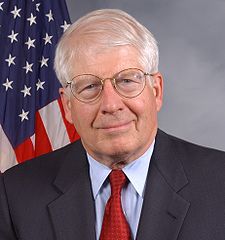 On July 28, Rep. David E. Price introduced a 252-page bill which would reform campaign finance laws, amend the current federal lobbying laws, and address integrity and transparency problems in the Executive Branch.
On July 28, Rep. David E. Price introduced a 252-page bill which would reform campaign finance laws, amend the current federal lobbying laws, and address integrity and transparency problems in the Executive Branch.
House Resolution 3537, We the People Act of 2017, is a comprehensive attempt to address issues such as federal lobbying, campaign finance, redistricting imbalances, and voter eligibility in order to focus on “major structural problems facing our democracy,” according to Price’s press release.
The law would change lobbying registration requirements and no longer exempt an individual who spends less than 20 percent of his or her time serving as a lobbyist for a particular client if he or she meets the other thresholds for registration. In addition, the legislation would require U.S. presidents to divest assets with potential conflicts of interest, require states to allow eligible individuals to register to vote on the same day of a federal election, and replace the Federal Election Commission with a new enforcement agency.
In the bill, other pending legislation currently in Congress dealing with ethics and transparency are referenced and incorporated. The bill also provides suggested solutions to be used in state and local legislative reform efforts.
May 8, 2017 •
US Spending Bill Has Campaign Finance Provisions
Among the amendments in the 2017 Consolidated Appropriations Act that passed into law on May 5 are two provisions affecting campaign financing. House Resolution 244 explicitly prohibits the Internal Revenue Service from making new rules concerning the political speech or […]
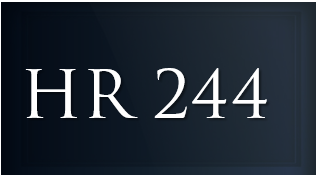 Among the amendments in the 2017 Consolidated Appropriations Act that passed into law on May 5 are two provisions affecting campaign financing.
Among the amendments in the 2017 Consolidated Appropriations Act that passed into law on May 5 are two provisions affecting campaign financing.
House Resolution 244 explicitly prohibits the Internal Revenue Service from making new rules concerning the political speech or activity of 501(c)(4) organizations. The legislation also prohibits the Securities and Exchange Commission from finalizing, issuing, or implementing any rule, regulation, or order regarding the disclosure of political contributions, contributions to tax exempt organizations, or dues paid to trade associations.
The 708 page omnibus spending bill, passed by Congress on May 4 and signed by the president on May 5, funds the U.S. government through September 30.
March 27, 2017 •
US House Bill – No US Funds for Trump Hotel Stays
A bill introduced in the U.S. House of Representatives earlier this month would prohibit the use of taxpayer funds to pay for food, lodging, or other expenses at hotels owned or operated by any U.S. president. House Bill 1452, the […]
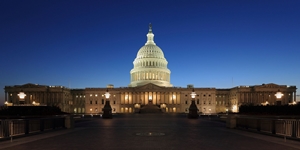 A bill introduced in the U.S. House of Representatives earlier this month would prohibit the use of taxpayer funds to pay for food, lodging, or other expenses at hotels owned or operated by any U.S. president.
A bill introduced in the U.S. House of Representatives earlier this month would prohibit the use of taxpayer funds to pay for food, lodging, or other expenses at hotels owned or operated by any U.S. president.
House Bill 1452, the “No Taxpayer Revenue Used to Monetize the Presidency Act of 2017,” or the “No TRUMP Act of 2017,” also prohibits any payment for lodging and other travel expenses by the federal government at hotels owned or operated by a president’s relatives.
In his introductory remarks, the bill’s sponsor, Rep. Earl Blumenauer, clearly specified President Trump was the target of the legislation: “Hardly a week goes by without reports of taxpayer-funded trips by the president or his family to one of his family-owned properties throughout the world. These excesses have surpassed anything that this nation has seen before, and this unprecedented abuse of taxpayer dollars demands an additional ethical check on the office of the presidency.”
February 23, 2017 •
FEC Commissioner Ravel Resigns Effective March 1
On March 1, Commissioner Ann M. Ravel will resign from the Federal Election Commission (FEC). In her February 19 resignation letter to the president, Commissioner Ravel urged he prioritize campaign finance reform, strengthen disclosure law, and “reduce reliance on the […]
 On March 1, Commissioner Ann M. Ravel will resign from the Federal Election Commission (FEC). In her February 19 resignation letter to the president, Commissioner Ravel urged he prioritize campaign finance reform, strengthen disclosure law, and “reduce reliance on the wealthy.”
On March 1, Commissioner Ann M. Ravel will resign from the Federal Election Commission (FEC). In her February 19 resignation letter to the president, Commissioner Ravel urged he prioritize campaign finance reform, strengthen disclosure law, and “reduce reliance on the wealthy.”
With Ravel’s absence, there will be three registered members of the Republican Party and two registered members of the Democratic Party on the Commission. The FEC requires at least four commissioners to agree for any official action. A replacement for Ravel will be selected by President Trump and must be confirmed by the U.S. Senate.
While not more than three members of the commission may be registered with the same political party, the president is not obligated to nominate a member of the Democratic Party, of which Ravel is a registered member.
January 17, 2017 •
The Cost of the Inauguration
President-Elect Trump’s Inauguration is estimated to cost around $200 million. The official events, including the swearing-in ceremony, security, and the parade, will be paid for by the federal government. Security is the biggest expense, accounting for almost half of the […]
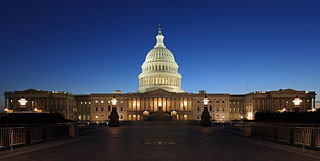 President-Elect Trump’s Inauguration is estimated to cost around $200 million. The official events, including the swearing-in ceremony, security, and the parade, will be paid for by the federal government.
President-Elect Trump’s Inauguration is estimated to cost around $200 million. The official events, including the swearing-in ceremony, security, and the parade, will be paid for by the federal government.
Security is the biggest expense, accounting for almost half of the budget. The inaugural ball and other festivities will be covered by the Presidential Inaugural Committee, which raises money through private donors. The committee has raised a record $100 million-plus, which is almost double the committee for President Obama raised in 2009.
Inaugural committees have few regulations, but each administration sets their own rules and limits on donations. President George W. Bush capped the amount each individual and corporation could donate. In 2009, Obama allowed individual gifts up to $50,000, but banned donations from lobbyists and corporations.
Trump did not place restrictions on donations from individuals, but his committee has refused donations from federal lobbyists and capped corporate contributions to $1 million.
State and Federal Communications, Inc. provides research and consulting services for government relations professionals on lobbying laws, procurement lobbying laws, political contribution laws in the United States and Canada. Learn more by visiting stateandfed.com.

